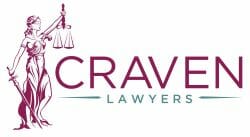Do you need to tell a Queensland police officer your name and address?
Author: Justin Craven, Brisbane Criminal Lawyer
When can a police officer require you to state your name and address?
The Police Powers and Responsibilities Act 2000 (Qld) provides for the circumstances when a police officer can require you to state your name and address.
The circumstances are as follows:
(1) if the police officer finds you committing an offence.
(2) if the police officer reasonably suspects you have committed an offence.
(3) if the police officer:
(i) reasonably suspects you are a participant in a criminal organisation; or
(ii) finds you at a prescribed place as defined under s60B Criminal Code;
(iii) finds you at a prescribed event as defined under s60B Criminal Code.
(4) a police officer is about to take—
(i) your identifying particulars (this can include your palm prints, fingerprints, handwriting, voiceprint, footprint, photograph of your identifying features, a measurement of any part of your body, other than your genital or anal area, buttocks or breasts)under an identifying particulars notice or an order of a court made under the Police Powers and Responsibilities Act; or
(ii) a DNA sample from you under a DNA sample notice or an order made under the Police Powers and Responsibilities Act.
(5) an authorised examiner is about to perform a non-medical examination on you.
(6) a police officer is about to give, is giving, or has given you a noise abatement direction, an initial nuisance direction or a final nuisance direction.
(7) a police officer is attempting to enforce a warrant, forensic procedure order or registered corresponding forensic procedure order or serve on you:
(i) a forensic procedure order or registered corresponding forensic procedure order; or
(ii) a summons; or
(iii) another court document.
(8) a police officer reasonably believes obtaining your name and address is necessary for the administration or enforcement of an Act prescribed under a regulation.
(9) a police officer reasonably suspects you have been or are about to be involved in domestic violence or associated domestic violence.
(10) a police officer reasonably suspects you may be able to help in the investigation of:
(i) domestic violence or associated domestic violence; or
(ii) a relevant vehicle incident.
(11) a police officer reasonably suspects you may be able to help in the investigation of an alleged indictable offence because you were near the place where the alleged offence happened before, when, or soon after it happened;
(12) you are in control of a vehicle that is stationary on a road or has been stopped for a prescribed purpose under s60 of the Police Powers and Responsibilities Act 2000 (Qld) (e.g. for the purpose of a breath or saliva test).
(13) a qualified person for performing a forensic procedure is about to perform the forensic procedure on you.
(14) a police officer is detaining you for transport or admission to a sober safe centre, or you have been admitted to, and are in custody at, a sober safe centre.
(15) a police officer is about to give or is giving you a police banning notice.
What happens if I do not comply with the police officer’s request?
If you do not comply with the police officer’s request then you can be charged with an offence known as Contravening a direction or requirement of a police officer under s791 of the Police Powers and Responsibilities Act 2000 (Qld).
What is the penalty for an offence of contravening a direction or requirement of a police officer?
For an offence involving the non-stating of your name and address the maximum penalty is 40 penalty units ($6,192.00).
WE ARE YOUR BEST DEFENCE
CALL 1800 529 000 NOW FOR EXPERT ADVICE
